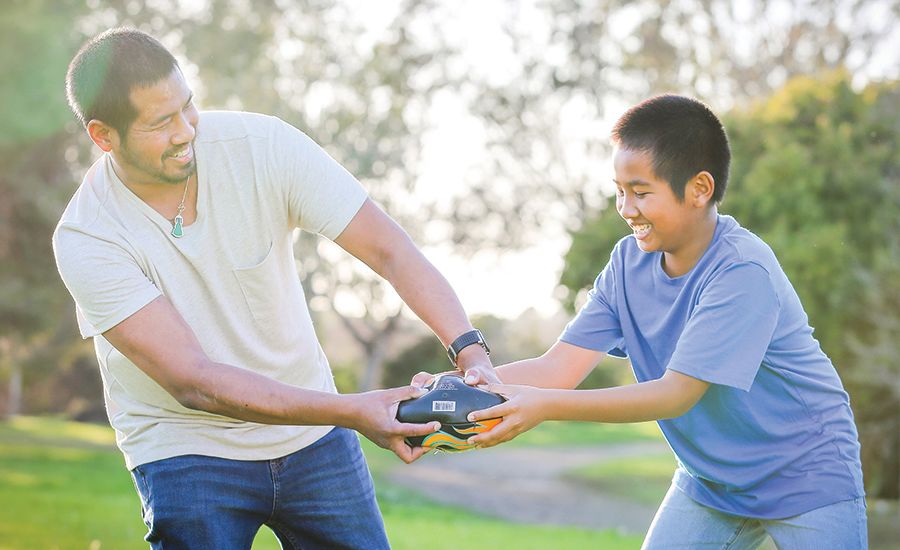Plaque Psoriasis
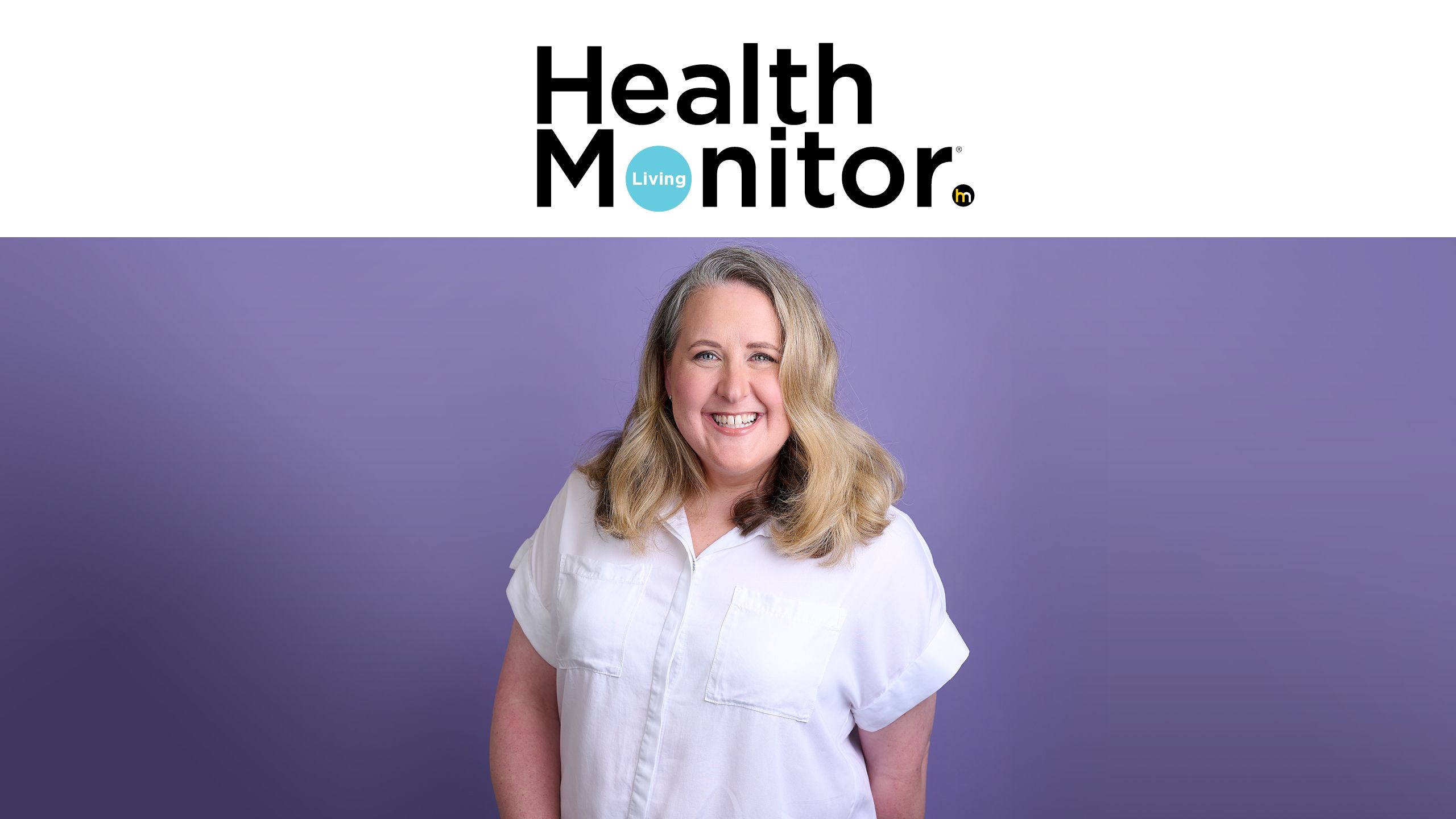
After years of struggling with treatments that never fully worked, Renee Morgan finally upped her psoriasis game. Now free of plaques thanks to an oral medication, she’s sharing her success story in the hopes it will inspire others to stop “settling for second best.”
Paid Advertiser
Paid Advertiser
CONTENTS
Health Monitor Living Plaque Psoriasis
Don’t let psoriasis steal your confidence!
With today’s treatment options, you have every reason to believe clear, healthy skin is in your future
How is psoriasis treated?
Learn more about the different options and which one might work best for you.
“We’re no longer suffering in silence!”
Renee, Nancy and Joey share the strategies they’ve learned over the years to keep their skin clear—and improve their mental health, too. Ask your care team if their tips make sense for you!
Protect your whole body
While it can seem like psoriasis only affects the skin, the truth is this inflammatory condition can impact far more—including your heart health, digestive system and your joints. Read on to learn more.
Resources you can rely on
Looking for more information? Need help with medication costs or transportation to exams? Want to connect with a support group? These sites can help.
Comebacks for questions about your psoriasis
Don’t let other people’s comments leave you at a loss for words.
Test your psoriasis know-how!
Think you have all the facts on this skin condition? Put your knowledge to the test!
Don’t let psoriasis steal your confidence!

Paid Advertiser
Paid Advertiser
With today’s treatment options, you have every reason to believe clear, healthy skin is in your future
You may have been shocked when you first found out you have psoriasis. But as one of up to 8 million Americans living with the condition—the most prevalent autoimmune disease in the United States—you are far from alone. And the first step toward taking charge is learning more about the disease and the many avenues you have to treat it.
So take a moment to read through this guide; even if you’ve been living with psoriasis for years, you may be surprised by what you learn. And if you’ve just been diagnosed, arming yourself with knowledge of the disease can help you and your healthcare team zero in on a treatment plan that can clear your skin—and get you back to living your life with confidence!
What is plaque psoriasis?
Psoriasis is known as an immune-mediated disease—meaning it’s caused when something goes wrong with a person’s immune system. In the case of plaque psoriasis, T-cells, which usually attack germs and foreign invaders, begin to attack healthy skin cells. This triggers the body to start creating new cells at a rapid rate, resulting in itchy and/or painful raised round spots with silvery scales that can sometimes crack and bleed.
Plaques can appear anywhere on the body, but most often show up on the elbows, knees, torso or scalp. Psoriasis can also affect more than just the skin, and is associated with multiple other conditions, including heart disease, obesity, diabetes, inflammatory bowel disease and depression. That’s why it’s key to find a treatment that works!
It’s also important to note that psoriasis is not contagious—you cannot catch it or spread it.
Who is at risk?
While scientists are still not sure what causes the immune malfunction behind psoriasis, it’s believed to be a combination of genetic and environmental factors. If one parent has it, you have a 10% chance of developing it yourself, and a 50% chance if both parents have it.
Some people find their psoriasis first appears after a stressful event, such as a move; after having an infection, such as strep; after a bad sunburn or skin injury; or after taking a certain medication, such as steroids, lithium or a beta blocker.
Plaque psoriasis strikes people of all genders equally, and while it most often shows up in people between the teen years and the mid-30s, it can occur at any age. Smoking also seems to increase a person’s chances of getting it.
How is it diagnosed?
Your healthcare provider may ask you questions about your medical and family history and will perform an examination of your skin. In some cases, they may take a small skin biopsy to confirm the diagnosis or rule out other conditions.
Once plaque psoriasis is confirmed, they will rank the severity, either by how much of your body is covered (less than 3% = mild; from 3% to 10% = moderate; more than 10% = severe) or via the Psoriasis Area and Severity Index (PASI) on a scale from 0 to 72, where a score higher than 10 suggests severe.
What this means for you
Regardless of whether you’ve just been diagnosed or have been living with psoriasis for a while, there’s every reason to believe you can find a treatment that works for you. Continue here to learn about the different options and remember—you’re a key member of your healthcare team. By staying up-to-date on the latest options, taking your medication as prescribed (and giving it time to work) and being open and honest with your doctor, you’ll be living with clearer, more comfortable skin in no time!
How is psoriasis treated?

Paid Advertiser
Paid Advertiser
When reviewing your treatment options, your doctor will ask about your health history, changes in your current health status, as well as how you feel about your psoriasis and what you’re willing to try to achieve clear skin. Your plan of attack may include any of the following methods:
Applying topical treatments. These medications, available as creams and ointments, both over-the-counter and by prescription, help reduce inflammation, itching and scaling. Examples include anthralin, calcipotriene, calcitriol, coal tar, corticosteroid, retinoid and salicylic acid. You may try topical treatments if you’ve just been diagnosed or if patches are small.
Exposing your skin to light. Your dermatologist may suggest phototherapy—the use of ultraviolet light to treat your skin. This therapy helps to clear up plaques and reduce inflammation. Getting a phototherapy treatment involves exposing your skin to a lamp in your doctor’s office or to a prescription home phototherapy unit. Lamps range in size from a handheld wand to a full-body bed or booth. Light treatments typically happen a few times a week for a month or longer. Examples include ultraviolet B (UVB), psoralen + ultraviolet A (PUVA) and excimer laser. Phototherapy can also be used with medications. Note that tanning beds should not be used as a substitute for phototherapy.
Exploring body-wide (systemic) medication options. These medications slow skin cell growth and reduce inflammation. Examples include cyclosporine, methotrexate and drugs that block aspects of the immune system associated with psoriasis, such as biologics and PDE4-inhibitors.
What you can do
In addition to medication, you can also help lessen the symptoms of psoriasis by keeping skin moisturized; avoiding itchy or tight clothing; reducing stress; and maintaining a healthy weight.
And remember: How you feel about your psoriasis is unique to you. For some, large patches may not be a problem, while others may feel embarrassed about just a few small ones. No matter how you feel, it’s important to be open and honest with your healthcare provider. If your plaques are bothering you or embarrassment over your psoriasis is causing you to limit your activities, speak up!
Looking for a more low-maintenance treatment?
Does your current treatment require messy creams, weekly injections or frequent blood tests? Struggling with side effects? Tell your healthcare provider—together, you can find a treatment option that works for you, your body and your lifestyle!
“We’re no longer suffering in silence!”

Paid Advertiser
Paid Advertiser
Renee, Nancy and Joey share the strategies they’ve learned over the years to keep their skin clear—and improve their mental health, too. Ask your care team if their tips make sense for you!
“I’m never going back to topicals!”
____________________
RENEE MORGAN
When Renee Morgan isn’t busy juggling the active schedules of her two daughters, the 43-year-old can be found helping others regain their mobility as a physical therapy assistant. And lately a lot of her free time has been spent helping her sister Dayna plan her upcoming wedding in Las Vegas. Part of that planning process? Finally taking control of her plaque psoriasis.
“I’ve had psoriasis since as early as I can remember,” says the Munroe Falls, OH, resident. “It started in my ears, and our family doctor prescribed creams that helped a bit, at least enough that it wasn’t impacting my life.”
But things began to change for Renee when she started college. “That’s when I noticed plaques starting to show up elsewhere, including my arms, legs and back. I would go to a dermatologist and every time I would get prescribed a topical treatment. They would always semi-work but never completely, and being a full-time student made it tough to see a dermatologist consistently enough to discuss any other options.”
Life marched forward with Renee earning a business administration degree from Kent State and later pursuing a career in acute physical therapy hospital care. “And all that time I was always struggling with psoriasis plaques. It was like a part-time job I never asked for. Medications and over-the-counter shampoos were expensive and inconvenient to use, I tried all the steroid solutions and shampoos, the tar shampoos smelled terrible—and at the end of the day, the psoriasis was still there.”

Photo by Andy Eichner
Photo by Andy Eichner
“I needed something better”
While Renee “just dealt with” the subpar topicals, psoriasis continued to make her life more difficult.
“I have to wear navy scrubs to work. I was always conscious about what might be on my back. Just riding in a car, I would be worried about getting out and others seeing the flakes left behind. It was a day-to-day struggle. I thought about my skin from sun-up to sundown.”
It wasn’t until her sister announced her engagement—and subsequent wedding—that Renee finally got the inspiration she needed to pursue a more comprehensive psoriasis treatment.
“I didn’t want to spend my sister’s big day self-conscious about how I was going to look in the photos,” she says. “Or have to plan a bridesmaid dress around hiding my plaques. I’ve been in the healthcare field for 16 years—I knew there had to be something out there to help me!”
So Renee went back to the dermatologist, who suggested she try an oral medication that would tackle the cause of her psoriasis from within.
“My skin was clear for the first time in years!”
Before agreeing to the new treatment, Renee did her research. As a member of an online psoriasis support group, she searched for information about patient experiences and saw complaints of headaches and stomach upset with the new medication—but also saw encouragement that, in most cases, those issues tended to be short-lived.
Thankfully, Renee only experienced minimal side effects, which did subside.
“I had a few headaches in the beginning, but they were mild and manageable. I was so motivated to be better at the wedding that it was worth it, and I’m glad I stuck with it because the headaches did go away.”
More important? Renee’s skin cleared a full two months ahead of when her doctor told her she’d begin seeing progress. She can wear her matron of honor dress for the June wedding without thinking about plaque psoriasis.
“This medication has been a godsend! I wouldn’t want to go back—and I wish I had made this switch sooner!”
Done limiting her life due to feeling self-conscious, Renee looks forward to beach time with her wife and kids this summer. “I can wear a swimsuit without worrying about my arms and legs. I get so hot wearing pants when I work out; now, I’m back to wearing shorts at DrumFit classes and on the pickleball court.” Renee even has the freedom to wear her hair any way she pleases. “I never wore my hair behind my ears because the psoriasis was so bad in them. Now, I can brush it behind my ears or even wear it in a ponytail!”
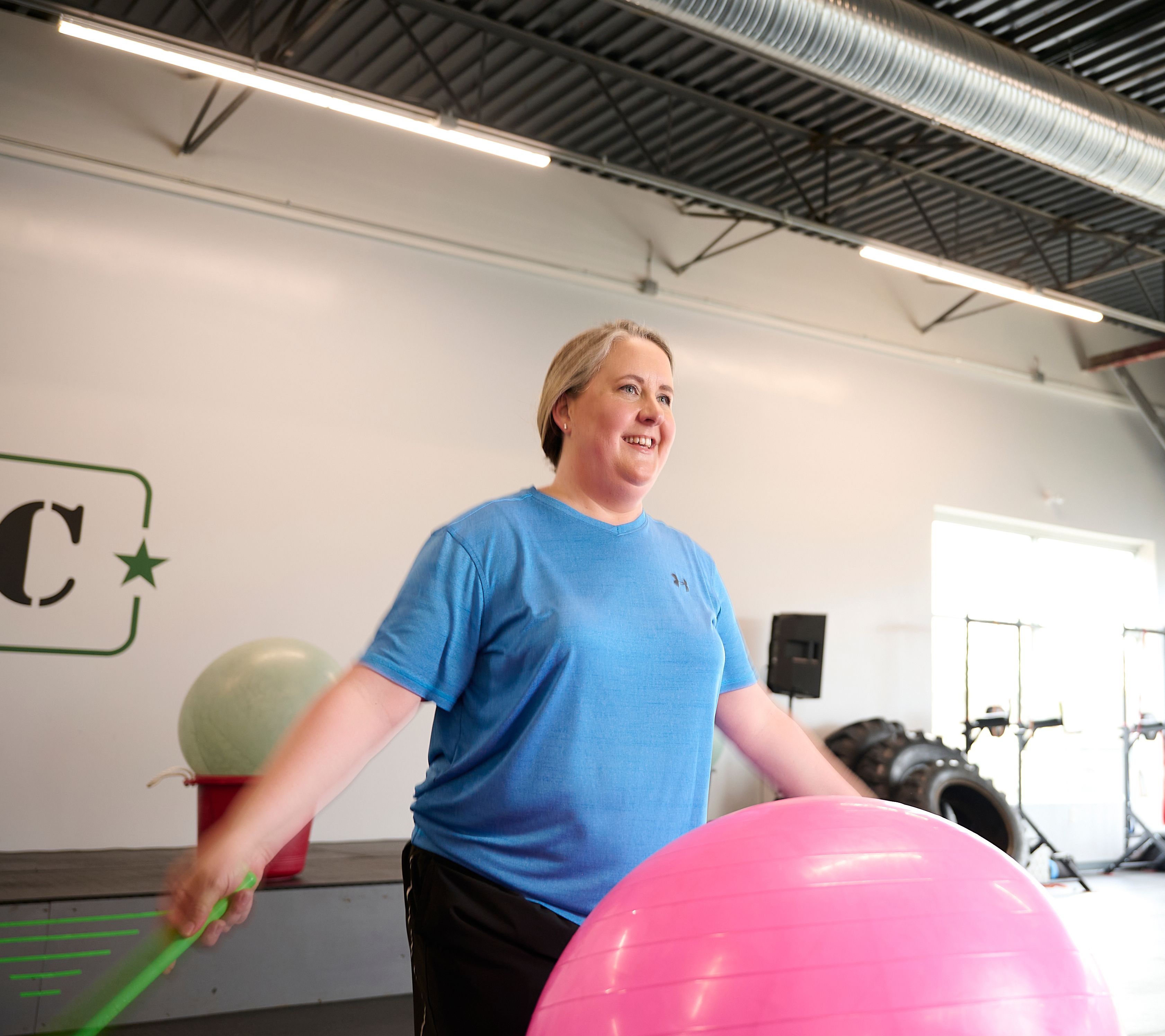
Photo by Andy Eichner
Photo by Andy Eichner
Today, Renee encourages other people living with psoriasis to seek treatment without compromise. “Don’t let side effects scare you. There’s a treatment out there for you. Give it a try! Stick with it for at least a month. If you have any issues, they will likely decrease by then. Give it four months to be effective. The redness, plaques and itching that psoriasis brings won’t be erased immediately, but the confidence, flexibility and freedom that comes with clear skin is worth the wait!”
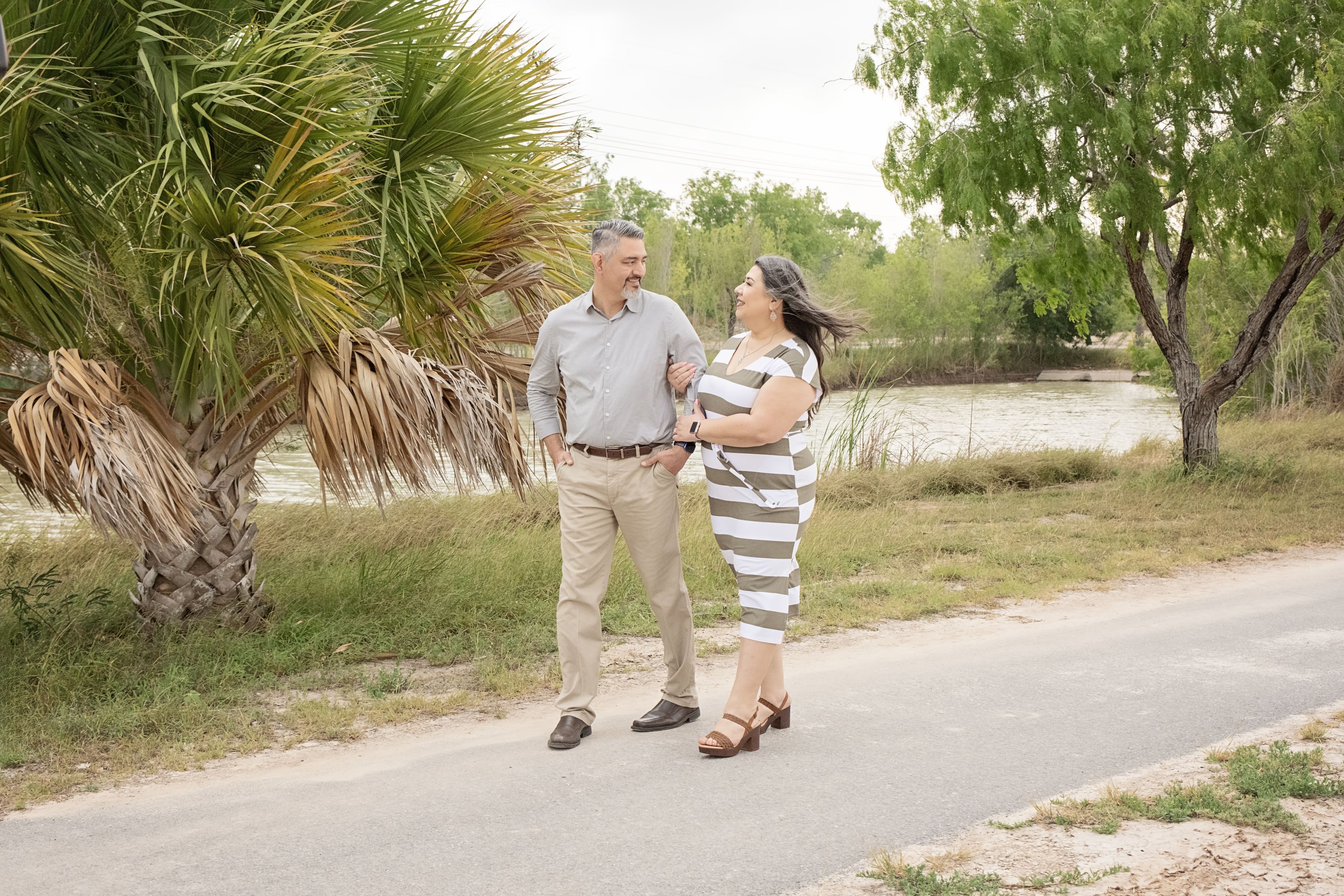
Photo by Netanya
Photo by Netanya
“Don’t let psoriasis define you!”
____________________
NANCY RODRIGUEZ
When Nancy was a senior in college, she noticed dandruff on the crown of her scalp. Eventually it became bothersome enough that she went to her doctor, who diagnosed her with plaque psoriasis.
Over time, the psoriasis became more serious and the Brownsville, TX, resident was started on methotrexate, an immunosuppressant that helps treat psoriasis. “I was on that for twenty years. My doctor didn’t give me any other options. But even though my psoriasis was better, I never got fully well. I wasted a lot of valuable time not being properly treated. So now I know to question everything. If you must drive a few cities over to find the right doctor, do it! It’s your health, and you have to advocate for it!”
Today, at age 53, Nancy has found a treatment team she trusts, a therapy that works, and she can enjoy her favorite activities again. Here she shares the other tips she learned along the way with psoriasis.
Research your options. Being a married college student with two young children when first diagnosed, Nancy understands how costly treatment can be, especially with no health insurance. “In desperation, I researched programs available to help with the cost and found one where I only had to pay $15 for doctor’s visits. Don’t be afraid to ask for help! Delaying treatment can be costly, too.”
Reduce stress and other triggers. Nancy built a career as a school dyslexia specialist. “I loved my job, and deciding to retire in 2013 was difficult. But I left because it was the right thing to do for my body. The position brought a lot of stress, and that was a trigger for my psoriasis.” Today, with her condition under control with a biologic, Nancy is opening up a small event venue. “This works better for me—I can set the schedule, and I can book appointments on certain days and rest on the others.”
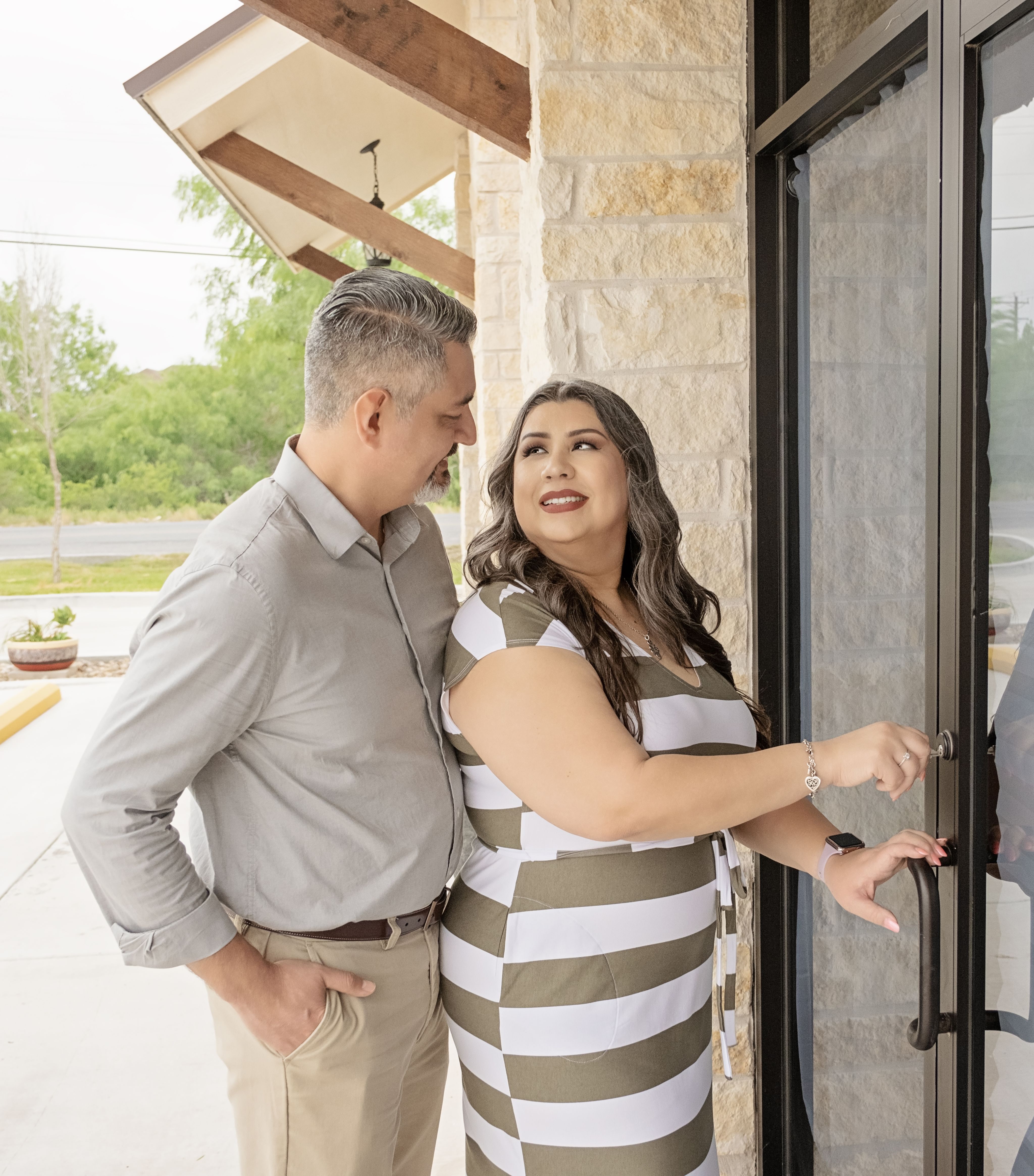
Photo by Netanya
Photo by Netanya
Be confident. “Don’t let psoriasis define you! Be confident. I’ve never let it control me. I still wear black and dark colors because I like them and I don’t worry about flakes. People often tell me they love my self-confidence. I tell them I have to be confident. This is how God made me. I enjoy life and am happy to be alive whether I have spots and scabs here and there or not.”

Photo by Ranch Photography
Photo by Ranch Photography
“Find a listening ear”
____________________
JOEY PEAT
To spread awareness of his condition, Joey Peat takes a humorous approach. “I tell them it isn’t anything contagious first and foremost, and that dry skin isn’t a sign of some zombie epidemic! I also remind them that it isn’t a disease that easily comes and goes, but an incurable chronic one that me and many others are fighting.” Here are the other ways he copes:
Weigh the pros and cons.
Joey admits that avoiding the temptation to scratch is no easy task. “It’s like a spontaneous itch on your back that you need to scratch, and the problem is, it doesn’t go away after scratching it,” he says. What helps him power through the itch? “The thought of bleeding and infection is what prevents me from scratching.”
Meditate!
“Considering stress is one of the most difficult things to eliminate in daily life, I try to subtract the negative energy by meditating. It helps me clear my mind and refocus on life’s most important tasks, like caring for my family.”
Turn to your family.
“Playing games with my son or being around family and close friends helps distract my mind and uplift my mood. My son is an absolute entertainer. We sing and go on adventures together—my happiness overrides anything that might have bothered me. Being around my parents and close friends also helps because they let me speak my mind.”

Photo by Ranch Photography
Photo by Ranch Photography
Keep your psoriasis in check and protect your whole body!
Although your skin seems to be the main target of psoriasis, keep in mind that it is an inflammatory disease that can affect other parts of your body, too. Use this worksheet to keep track of symptoms not related to your skin, and review it with your doctor. And ask how your treatment may affect any other health conditions you might have. Some options may be better than others.

Your HEART
People with psoriasis are 21% more likely to have a heart attack, according to a study presented at the annual meeting of the American College of Cardiology.
What to watch for:
- Chest pain, tightness or discomfort
- Rapid heartbeat
- Shortness of breath with activity
- Tingling down arm
- Unusual stomach pain, nausea or indigestion
- Sudden awakening from sleep with shortness of breath
What you can do:
- Get regular screenings (blood pressure, blood sugar, cholesterol).
- Maintain a low-fat, high-fiber diet with lean sources of protein, such as fish and poultry.
- Aim for at least 30 minutes of moderate-intensity activity at least five days a week.
- Achieve and maintain a healthy weight.

Your EMOTIONAL WELL-BEING
People with psoriasis are more likely than people without the disease to suffer from depression or anxiety.
What to watch for:
- Persistent sadness
- Anxiety
- Feelings of hopelessness
- Loss of interest in hobbies and activities
What you can do:
- Discuss your symptoms with your doctor and with those close to you.
- Eat a healthy diet and get regular activity.
- Maintain a regular sleep schedule.
- Find a stress-reduction technique that works for you.

Your DIGESTIVE SYSTEM
One study found that people with psoriasis are 2.5 times more likely to get Crohn’s disease and 1.6 times more likely to get ulcerative colitis.
What to watch for:
- Abdominal cramps and pain
- Fatigue
- Urgent bowel movements
- Severe diarrhea
What you can do:
- Be open about all your symptoms with your doctor.
- Know your triggers and avoid them.
- Keep a symptom diary.
- Quit smoking.

Resources you can rely on

Paid Advertiser
Paid Advertiser
Struggling with your psoriasis? Looking for places you can trust for information and care? Check out these trusted organizations…
Seeking more information on psoriasis?
- National Psoriasis Foundation psoriasis.org
- National Institutes of Health niams.nih.gov/health-topics/psoriasis
- American Academy of Dermatology Association aad.org
Need a support group?
On Facebook:
On Instagram or X:
- Search hashtags #psoriasis #plaquepsoriasis or whichever treatment you’re taking
Online:
- Twill Care care.twill.health
Looking for a provider?
- Zoc Doc zocdoc.com
- Health Grades healthgrades.com
Need help with payment assistance?
- The Assistance Fund tafcares.org
- Help Hope Live helphopelive.org
- Needy Meds needymeds.org
- Medicine Assistance Tool mat.org
- National Patient Advocate Foundation npaf.org
Looking for transportation services?
- Patient Access Network panfoundation.org
- MTM mtm-inc.net
- Centers for Medicare and Medicaid Services cms.gov
Confident comebacks for the most common questions about psoriasis

Don’t let other people’s comments leave you at a loss for words.
As someone with psoriasis, you’ve probably been on the receiving end of questions or comments that made you feel embarrassed—something you can surely do without, especially if you’re already feeling self-conscious about stubborn plaques. After all, coping with the scaly patches isn’t easy; it can lead to isolation, anxiety and even depression. Consider that the National Psoriasis Foundation reports that 63% of people living with the immune-mediated disease say it takes a tremendous toll on their emotional well-being.
“Psoriasis can have a negative impact on a patient’s life simply because of the way it looks,” confirms Misbah Khan, MD, president and founder of M Khan Dermatology and Cosmetic Surgery in New York City and clinical assistant professor of dermatology at Weill Cornell Medical College.
The good news? Next time loved ones, friends, co-workers—even total strangers!—hit you with a question, you’ll be prepared. Take control of the conversation with Dr. Khan’s comebacks for the top four questions about psoriasis:
Question: “Why are you so red?”/“What are all those spots on you?”
- Quick comeback: “I have an immune-mediated skin disorder that causes my skin cells to grow too fast.”
- Why this works: It’s most likely that the person asking you this question isn’t trying to be rude—they simply don’t know what psoriasis is. Consider this an opportunity to spread information and raise awareness about the condition. By highlighting that psoriasis is an immune-mediated disorder, you’re helping to educate the public about how serious it is.
Question: “Does it itch/hurt/bother you?”
- Quick comeback: “It does get itchy and rougher during the winter, just like everyone else’s skin. How do you treat your skin during the colder months?”
- Why this works: This reminds the person you’re speaking with that everyone deals with skin issues, even if yours are more visible. And by ending with a question, you redirect the conversation back to them.
Question: “Is that contagious?”
- Quick comeback: “No, you can’t catch it from me—it’s not spreadable. I can shake hands, go to the hairdresser, get a massage or hug anyone I like.”
- Why this works: This direct answer will reassure others that there’s no reason to be alarmed. As hurtful as the question may sound initially, keep in mind that it’s understandable for someone to be cautious. Chances are this person is asking out of concern for their own health, especially if they have a compromised immune system.
Question: “When will it go away?”/“Why don’t you treat it?”
- Quick comeback: “It’s just the way my skin is. It has good days and bad days, but this condition will always be with me.”
- Why this works: A reply that is simple and honest can quickly end the conversation. However, if you’d like to give this person more information about your condition, consider approaching this as a teaching moment, as well. This gives you the option to talk more about your treatment, or just let the conversation end if you prefer.
Quiz

Special thanks to our medical reviewer:
Mark G. Lebwohl, MD, Dean for Clinical Therapeutics, professor and chairman emeritus at Kimberly and Eric J. Waldman Department of Dermatology, Icahn School of Medicine at Mount Sinai, New York
Maria Lissandrello, Senior Vice President, Editor-In-Chief; Lori Murray, Associate Vice President, Executive Editor; Lindsay Bosslett, Associate Vice President, Managing Editor; Joana Mangune, Senior Editor; Erica Kerber, Vice President, Creative Director; Jennifer Webber, Associate Vice President, Associate Creative Director; Ashley Pinck, Associate Art Director; Sarah Hartstein, Graphic Designer; Rachel Pres, Senior Director, Digital Production
Dawn Vezirian, Vice President, Financial Planning and Analysis; Tricia Tuozzo, Sales Account Manager; Augie Caruso, Executive Vice President, Sales & Key Accounts; Keith Sedlak, Executive Vice President, Chief Growth Officer; Howard Halligan, President, Chief Operating Officer; David M. Paragamian, Chief Executive Officer
Health Monitor Network is the nation’s leading multimedia patient-education company, with websites and publications such as Health Monitor®.
For more information: Health Monitor Network, 11 Philips Parkway, Montvale, NJ 07645; 201-391-1911; healthmonitornetwork.com ©2024 Data Centrum Communications, Inc. Questions? Contact us at customerservice@healthmonitor.com
This publication is not intended to provide advice on personal matters, or to substitute for consultation with a physician.
YAM24-DG1-PSO-1ETO
Health Monitor Medical Advisory Board
Michael J. Blaha, MD, Director of Clinical Research, Ciccarone Center for the Prevention of Cardiovascular Disease; Professor of Medicine; Johns Hopkins
Leslie S. Eldeiry, MD, FACE, Clinical Assistant Professor, Part-time, Department of Medicine, Harvard Medical School; Department of Endocrinology, Harvard Vanguard Medical Associates/Atrius Health, Boston, MA; Chair, Diversity, Equity and Inclusion Committee, and Board Member, American Association of Clinical Endocrinology
Marc B. Garnick, MD, Gorman Brothers Professor of Medicine at Harvard Medical School; Director of Cancer Network Development, Beth Israel Deaconess Medical Center; Editor-in-chief of Harvard Medical School’s Annual Report on Prostate Diseases
Angela Golden, DNP, FAAN, Family Nurse Practitoner, former president of the American Association of Nurse Practitioners (AANP)
Mark W. Green, MD, FAAN, Emeritus Director of the Center for Headache and Pain Medicine and Professor of Neurology, Anesthesiology, and Rehabilitation at the Icahn School of Medicine at Mount Sinai
Mark G. Lebwohl, MD, Dean for Clinical Therapeutics, professor and chairman emeritus at Kimberly and Eric J. Waldman Department of Dermatology, Icahn School of Medicine at Mount Sinai, New York
Maryam Lustberg, MD, Associate Professor of Internal Medicine (Medical Oncology); Director, Center for Breast Cancer; Chief, Breast Medical Oncology; Yale School of Medicine
William A. McCann, MD, MBA, Chief Medical Officer; Allergy Partners, Asheville, NC
Mary Jane Minkin, MD, FACOG, Clinical professor in the Department of Obstetrics, Gynecology, and Reproductive Sciences at the Yale University School of Medicine
Rachel Pessah-Pollack, MD, FACE, Clinical Associate Professor, Division of Endocrinology, Diabetes & Metabolism, NYU School of Medicine, NYU Langone Health
Julius M. Wilder, MD, PhD, Assistant Professor of Medicine; Chair, Duke Dept of Medicine Diversity, Equity, Inclusion, and Anti-racism Committee; Vice Chair, Duke Dept of Medicine Minority Retention and Recruitment Committee; Co-Director for the Duke CTSI - Community Engaged Research Initiative



